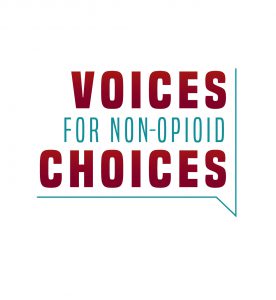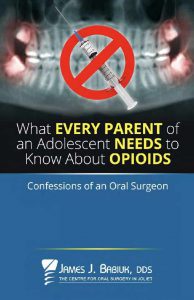What it Means to the Dental Community…
The NOPAIN Act, formally known as the “Non-Opioids Prevent Addiction in the Nation Act,” is a crucial piece of legislation that aims to address the opioid epidemic in the United States. Signed into law on December 28, 2022, it focuses on promoting alternative pain management methods and reducing the reliance on opioid medications, which have been a major contributor to the widespread addiction crisis.
The opioid epidemic has had devastating consequences, leading to a significant increase in opioid-related overdoses and deaths. Prescription opioids, often used for pain management, have been overprescribed, contributing to the surge in opioid addiction. The NOPAIN Act recognizes the urgency of tackling this crisis and proposes comprehensive measures to reshape pain management practices.
One of the key provisions of the legislation is the promotion of non-opioid pain management alternatives.
The act encourages healthcare providers to prioritize non-addictive treatments for pain, such as physical therapy, acupuncture, and non-opioid medications. By promoting these alternatives, the legislation seeks to reduce the likelihood of patients developing an addiction to opioids while effectively managing their pain.
Furthermore, it emphasizes the importance of education and training for healthcare professionals.
The act calls for enhanced education on pain management strategies that do not involve opioids. This training aims to equip healthcare providers with the knowledge and tools needed to offer alternative treatments, ensuring that they can make informed decisions that prioritize patient well-being and safety.
Another significant aspect is the focus on expanding access to non-opioid treatments.
The legislation recognizes that accessibility plays a crucial role in the success of any public health initiative. As such, the act proposes measures to increase the availability of non-opioid options, making it easier for individuals to access effective pain management without resorting to addictive substances.
Additionally, the NOPAIN Act addresses insurance coverage for non-opioid treatments.
The legislation advocates for policies that ensure insurance providers cover non-opioid pain management options. This not only makes these alternatives more affordable for patients but also sends a clear message about the importance of prioritizing non-addictive treatments in the healthcare system.
There is also an acknowledgment of the need for a collaborative and multidisciplinary approach to pain management.
By bringing together healthcare professionals, researchers, and policymakers, the act encourages the development of innovative and effective strategies for addressing pain without resorting to opioids. This holistic approach recognizes that solutions to the opioid epidemic require a comprehensive effort from various stakeholders.
The NOPAIN Act is a pivotal piece of legislation that addresses the opioid epidemic by promoting non-opioid pain management alternatives.
Through its provisions focused on education, training, accessibility, and insurance coverage, the act aims to reshape pain management practices in the United States. By prioritizing non-addictive treatments and fostering a collaborative approach, it represents a crucial step toward mitigating the devastating impact of the opioid epidemic on individuals, families, and communities across the nation.
The important question for us is, “How does it affect my practice?”
The unfortunate answer is that it doesn’t. At least not directly. This act was primarily aimed at Medicare patients having procedures in hospitals and surgery centers. The sections aimed at healthcare providers promoting no-opioid treatment and, hopefully, improving access to education on these treatments applies to all providers, including dentists.
The biggest potential impact is the increased reimbursement for non-opioid choices. Medical insurance companies follow Medicare rules and eventually provide similar coverage. We need to use this as a precedent to push the dental insurance industry to follow suit.
I have partnered with Voices for Non-Opioid Choices, an advocacy group that lobbied for this legislation. I encourage other dentists to support their efforts and to potentially start a similar campaign aimed at dental coverage.

ABOUT THE AUTHOR
Dr. James Babiuk, also known as TheWisdomToothDoc, is the founder of The Centre for Oral Surgery in Joliet, Illinois (https://wisdomteethjoliet.com). He is an international speaker and the author of “What Every Parent of an Adolescent Needs to Know About Opioids.”

A graduate of Northwestern University, Dr. Babiuk taught oral surgery and outpatient anesthesia to residents in training at Cook County/Stroger Hospital in Chicago. With over 25 years of practice experience and 29-plus years of anesthesia experience, he has performed well over 234,737 teeth extractions.
Dr. Babiuk is known for his holistic approach to oral surgery, focusing on all aspects of the patient and going above and beyond to meet their unique needs.


